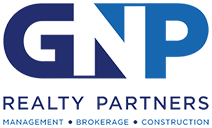
With all the HOA property management companies out there, it can be overwhelming to try and decide which is best for your community. However, choosing an HOA property management company is an important decision because it will have an effect on your everyday life.
The following are questions to ask an HOA property management company your board is considering hiring. It is also a good idea to sit down with the board members to discuss your community’s specific priorities for hiring a property management company because each property has unique needs and challenges. Making an informed decision in hiring an HOA property management company will have a positive and long-lasting impact on your community.
Want to learn more about Property Management?
Request Information | or Call Us at 312-329-8400
How Long Have You Been in Business and How Many Properties Do You Manage?
According to research company IBISWorld, more than 300,000 U.S. businesses specialize in property management, with market share spread widely among them. This means you’ll find a lot of small fish in a very big pond when conducting your property management company interviews. That’s why it makes sense to be direct on key factors when initially narrowing the pool of companies.
High up on your property management company questionnaire should be this pair of questions:
- How many years of experience does your HOA property management company have?
- How many units/properties does your HOA management company currently manage?
If the company is new to the field and has minimal experience managing multiple companies, strongly consider moving on to a more seasoned candidate.
What Service Does Each HOA Property Management Company Offer?
Just as each property is different, so are property management companies. You must understand their role and what services you should expect from them. Standard HOA property management services include:
- Administration
- Maintenance
- Customer service
- Financial
- Communications
Not all property management companies offer all these services, while others provide a more robust service package. You must be clear about the service options of each potential HOA property management company so that your expectations are aligned before you choose a partner to work with.
How Does the HOA Property Management Company Charge for Services?
Hiring a property management company is an investment in your community’s well-being. As such, you should expect the management company to charge fees for their services. However, unless your state mandates fees, there isn’t a set fee schedule, and each company will set its own rates.
Common fee types include:
- Initiation fees—cover the work to transition the day-to-day operations to the property management company
- Ongoing fees—set monthly fees paid to the management company, typically charged per unit
- Exit fees—cover the work required to switch from one management company to another.
These are just a few examples of fees that a HOA property management company may charge, but there could be many more. Make sure you know the exact fees each property management company charges for their services. Having a fee schedule will be especially helpful when comparing HOA property management companies.
What Value Does the HOA Management Company Bring to Your Community?
Aside from the day-to-day functions, ask what value-added services the management company will provide. Do they see opportunities to cut your costs? Will they review your service provider contracts to ensure your HOA receives the best rates? Remember that the HOA hires third-party providers to make the board’s job easier. It is crucial you get clear answers about how they plan to do that.
What are the Qualifications of your HOA Managers?
Qualifications for managers can vary based on your community’s specific needs and expectations, as well as the state and local laws and regulations. However, here are some general qualifications to consider:
- Education: While a specific degree may not be required to be an HOA property manager, a bachelor’s degree in business administration, real estate or a related field can be advantageous.
- Certifications: There are several industry-recognized certifications and designations that demonstrate a manager’s commitment to their profession and their understanding of HOA management, including:
- Certified Manager of Community Associations (CMCA) from the Community Association Managers International Certification Board (CAMICB).
- Association Management Specialist (AMS) and Professional Community Association Manager (PCAM) from the Community Associations Institute (CAI).
- Certified Property Manager (CPM) from the Institute of Real Estate Management (IREM).
- Communication Skills: Managers should be able to effectively communicate with a wide variety of people, including HOA board members, homeowners, vendors and others involved in the community.
- Organizational Skills: Managing multiple tasks, such as budgeting, scheduling maintenance, enforcing community rules and more, requires excellent organizational skills.
- Knowledge of Laws and Regulations: Managers should be knowledgeable about the laws and regulations that pertain to HOAs, which can include state HOA laws, Fair Housing laws and local municipal ordinances. (See next question category.)
- Financial Skills: HOA managers often handle budgeting, financial reporting, and other fiscal responsibilities, so they must have strong financial skills.
- Negotiation Skills: Managers often negotiate contracts with vendors, mediate disputes between homeowners and more, which requires good negotiation skills.
Are you up to date on HOA laws?
Any property management company should make it a priority to stay up to date with all current laws and regulations that pertain to homeowners associations. Laws vary from state to state and can change over time, so they should be committed to ongoing education to ensure they always operate within legal boundaries.
Their team should regularly attend seminars, webinars and continuing education courses related to HOA management and maintain a strong relationship with local legal experts specializing in HOA law. This ensures they can quickly get counsel if a situation requires legal expertise.
With Whom Do You Partner, and What Additional Resources Do You Bring?
No property management company can do everything in-house. Part of a successful relationship with an HOA manager includes choosing one with extensive connections in the property management community. Why is this important? Consider the following hypothetical situations.
The community pool at your HOA has begun developing visible cracks, and water usage bills are climbing. Residents have begun to express concern about a lack of security measures in common areas. The landscaping around the community park constantly looks unkempt.
If your property management company lacks connections with skilled contractors with specific expertise, security companies or landscapers, it won’t be able to stay on top of the numerous tasks that an HOA community requires. That translates into unhappy residents — and an unsuccessful community. So, during your interview, ask, “Do you have a team of service providers to support the HOA property manager in day-to-day and specialized tasks?”
How Often Do You Conduct Inspections?
Inspections should be conducted regularly, typically in alignment with the specific needs and expectations of each community they manage. This may mean monthly, quarterly or semi-annual inspections, depending on such factors as the size of the community, the age and condition of the properties and the specific requirements of the HOA’s governing documents.
In addition to routine inspections, a reputable company will conduct targeted inspections as needed. For example, they might inspect a property after the report of a maintenance issue to ensure the work was completed properly. Similarly, they would also conduct inspections following a significant weather event or other incident that could potentially have caused damage to properties within the community.
How Do You Tackle Financial Management?
The ideal HOA property management company takes a comprehensive and meticulous approach to financial management. They understand the financial health of an HOA is of utmost importance and impacts the quality of life in the community.
Firstly, they establish and maintain a clear and accurate budget, working closely with the HOA board to forecast income and expenses based on historical data and projected needs. This helps ensure the HOA’s financial stability and allows for planning for both short-term operational costs and long-term capital improvements.
Secondly, they handle all aspects of financial record-keeping, providing transparent, detailed reports to the HOA board on a regular basis. These reports typically include balance sheets, income statements, cash flow statements and a ledger detailing all transactions.
Thirdly, they manage the collection of HOA dues and assessments, employing a fair but firm approach to ensure timely payment. If homeowners fall behind, they have established procedures to work with these individuals while adhering to all legal and ethical guidelines.
Lastly, they oversee the HOA’s reserve fund, helping to plan and save for future capital repairs, replacements and improvements. This involves working with the board to conduct and update reserve studies, ensuring the community is financially prepared for major expenditures.
Is the HOA Property Management Company Licensed and Insured?
Some states require HOA property management companies to be licensed; however, not all states require this. Do some research to see if your state is one of them, and if it is, make sure the company you’re considering is licensed and can provide proof upon request.
In addition, you may want to consider a company certified by the Community Associations Institute (CAI). This organization provides its members with the resources and knowledge required to be professional and effective property managers.
Any property management company your HOA is considering should also be able to provide proof of insurance. State laws will determine the minimum amount of insurance required, but liability and workers’ compensation insurance are also good things for them to have.
Check each prospective HOA property management company’s references. How they do business with other properties is a good indication of what you can expect from them in the future.
How Will You Respond to Emergencies and Maintenance?
The prospective management company should be highly committed to timely and effective responses to emergencies and urgent maintenance issues. These matters are not only critical to the physical well-being of the community but also to homeowner satisfaction.
Ideally, they should have an emergency hotline that allows homeowners to report urgent issues at any time, day or night. Their team is always ready to react quickly and appropriately, whether coordinating with first responders, dispatching a maintenance crew or facilitating necessary repairs.
For routine maintenance, they should adopt a proactive approach. Regular property inspections help identify potential problems before they escalate, allowing them to schedule necessary repairs or preventative maintenance. They should work with a network of trusted vendors and service providers to ensure all work is performed to a high standard.
How and What Do You Plan to Communicate with Us?
Executive coach Joseph Sommerville said, “We take communication for granted because we do it so frequently, but it’s actually a complex process.” That’s absolutely true and clarifying exactly how communication will occur is incredibly important when evaluating a prospective HOA property management company for your needs. Effective action can’t happen without timely communication, and any HOA property management company needs to answer in a way that furthers your community’s goals and fits with the culture.
The answers to these questions will give the HOA board the most vital information to compare HOA property management companies and make a best-fit decision for your community. GNP has extensive experience in residential property management, taking the burden of managing the minutia off the HOA board’s plate—including ongoing maintenance, vendor management, rent or HOA fee collection, accounting, security and inevitable legal issues.
GNP Realty’s in-house family of diversified companies provides our clients with full-service strategy and hands-on support for all your real estate needs. From brokerage and management to construction and maintenance, we tailor our commercial and residential services to help you achieve your goals as a property owner or investor.







